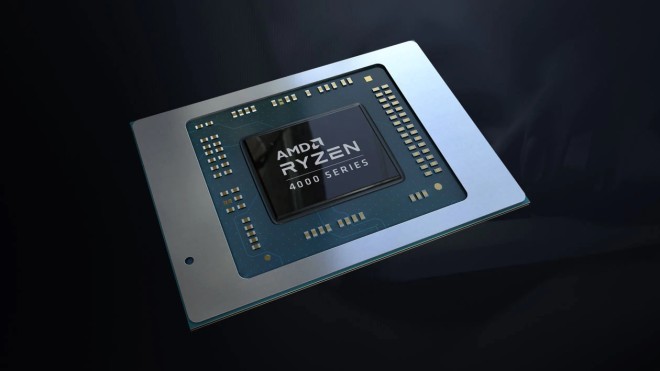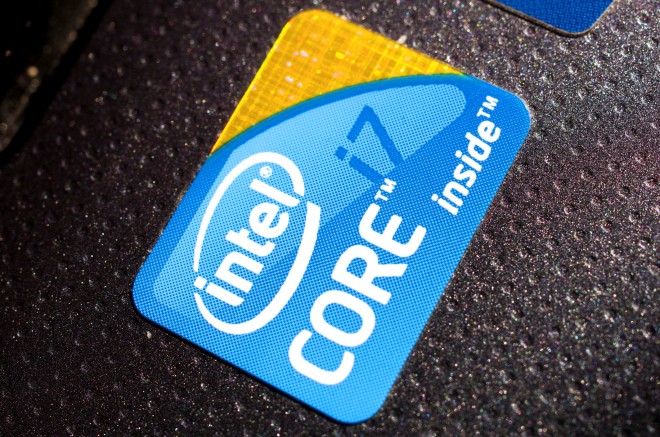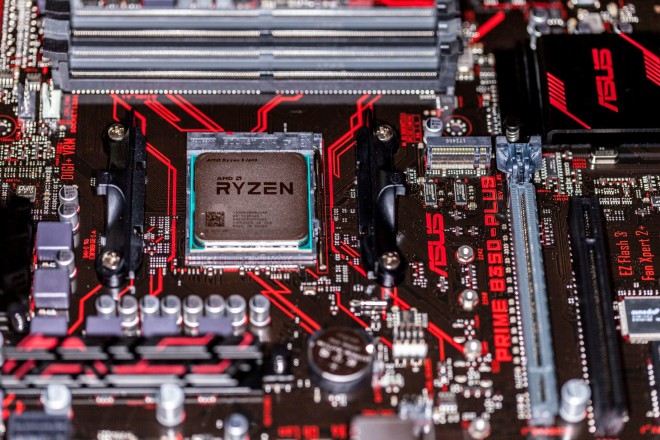Every large corporation needs competition, an archrival even, for interesting tales to emerge around their products. Intel have been ruling the roost in terms of chip design for many years, but for the first time since 2006, the semi-conductor specialist is gradually losing ground to AMD! Once primarily a low-budget choice, AMD's products have evolved into a genuine Intel alternative—even regularly outclassing them!

AMD's dark ages
For quite a while, the troubled AMD corporation tried to compensate for weaker single-core performance by adding additional cores to their chips—with woeful results. I remember the time when one of my friends, strapped for cash, bought a PC that was not only comparatively slow but also made for a great fan heater, despite all parts being properly assembled. Once he decided to overclock his processor, the mighty fan never stood still again, rivaling a small plane noise-wise and driving everyone mad. Back then he vowed never to buy from AMD again. Today, he's happy with his current AMD processor—which he freely bought, and not under coercion!
The resurrection
The tides are turning. For the first time since 2006, when AMD stole the show with their Athlon 64 X2, the company is getting back into the processor game.
Brief history flashback: In 2006, AMD bought graphics card and chip manufacturer ATI. Believed to be on the verge of a victory march, AMD's market share dropped below 20% soon after. Intel didn't play fair and put the thumbscrews on major PC stores through "exclusive deals", driving AMD products off the shelves. In 2014, Intel were fined 1.06 billion euros for abuse of a dominant market position and engaging in illegal anticompetitive practices to exclude competitors from the market for computer chips. Still, the AMD brand took a major hit. 2017 saw the beginnings of a turnaround. Originally thought of as a budget-friendly solution, because Intel chips were anything but wallet-friendly, AMD's Ryzen processors were an almost even match for Intel's top-of-the-line CPUs. AMD also managed to poach processor designers from Intel and made great strides in terms of manufacturing processes in general. From there on, it was full steam ahead for AMD!
 The market leader is under pressure
The market leader is under pressure
The performance dilemma
So what does performance mean exactly? Naturally, you can't just multiply the number of cores with the clock speed per core to determine the "total performance", even though PC vendors like to do just that. I like to think of processors as cars with a fixed number of seats. Picture a car with two seats that does 200 kph and a car with five seats that does 180. Just because it has two seats, car number one's top speed doesn't suddenly double. But the second car, though slower, can carry more passengers. The same is true for multi-core CPUs: For the time being, Intel has faster single-core speeds, while AMD offers more cores per CPU. But clock speeds are no longer a reliable performance indicator. Thanks to smarter processor designs, faster processing units and instruction set extensions, processor performance can rise without the need for increased clock speeds. That's why benchmarks that measure real-world performance are more reliable than mere data sheets.
Which processor do you need?
It's horses for courses: Gamers require high single-core performance, because many games still don't handle load balancing across multiple cores very well. That mean's advantage Intel, though AMD are catching up fast. In the multimedia sector, e.g. video editing and conversion, AMD's Ryzen processors offer top performance at more reasonable prices. As mentioned before, AMD's CPUs feature more cores and consequently shine in all areas where applications support proper cross-core load balancing. But to be clear: You don't need high-performance CPUs from either AMD or Intel to surf the web, edit Office documents or stream movies. In these instances, SSD or RAM upgrades are a better investment.
 Ushered in the turnaround: A Ryzen CPU from 2017
Ushered in the turnaround: A Ryzen CPU from 2017
Current recommendations
There's no shortage of processor models. Today, many complete systems feature Intel CPUs, even when they don't offer the best price-performance ratio. There's also no shortage of hardware benchmarks online, but many are so densely packed with figures and tables that they confuse the average visitor. My colleagues over at Techradar came up with a handy list which I'm going to share with you now:
Best overall CPU: Intel Core i9-9900KS
Best all-round CPI: AMD Ryzen 9 3900X
Best gaming CPU: AMD Ryzen 5 3600X
Best budget CPU: Intel Pentium G4560
Best entry-level CPU: AMD Ryzen 3 2200G
Best VR CPU: AMD Ryzen 7 1800X
Best performance processor: Intel Core i9-9980XE
Future prospects
While Intel are still using a 10 nm process and won't switch to 7 nm before 2021, AMD have already shifted to 7 nm manufacturing techniques (smaller is better). A smaller process usually offers higher performance at lower power requirements. The market leader in second place? Unthinkable a few years ago! The issue of too much power consumption, originally one of AMD's biggest drawbacks, has been completely resolved, it seems, with Intel CPUs now usually consuming more energy! AMD is regaining ground both in the private and the business/server sector, not least thanks to their Threadripper 3990X with a whopping 64 cores, that trounces existing workstation performance records on a regular basis. So it's worth checking out AMD when you're buying your next processor or complete PC, in many cases they're the better choice! Let's hope the still remaining "exclusive deals" won't hamper the market and that buyers get the best bang for their buck!
What I would like to know: Would you consider buying AMD CPUs or do you perhaps already have one?




I have an Alienware Aurora R10, Ryzen 7 3700X, with an AMD Radeon 3800XT, with 32G RAM, 512G NVM.2 SSD, 1TB 3D NAND SSD, 6TB WD HD, 4TB external drive, and a 2TB external drive.
It's a nice system. And I believe AMD Ryzens are now comparable to the Intel counterparts.
I've used AMD before, but didn't really care for them. So I've been using Intel core I5 and I7 since. then. But I would consider the new AMD Ryzen chips. They have potential and they've gotten better over the years. If I get another computer I might choose a Ryzen.
I have been using computers (desktop & laptop) for over 20 years. I have had several computers at the same time and they have mostly been built to my specifications. I have used both types of processor chips and have had no problems. You do need to choose the right processor for the right build though. If you have a gaming machine it needs a better chip than a general purpose computer.
Sven, all the systems were bench-marked with the SAME version (build) of Windows 10?
Build numbers are usually not included. I'm sure my colleagues over at https://www.techradar.com/ will be happy to provide you with that information.
Many MANY years ago I bought a PC with an AMD processor. It was one of the first AMD processors on the market here. I forget which one it was.
Because I experienced strange glitches and software incompatibilities and OS (Windows) crashes with it that did not occur on my older Intel PC, I swore never to get an AMD again, and I've stayed exclusively with Intel ever since.
I assume that all the test results mentioned in this article are based on MS Windows OSes (which?).
A LONG time has passed since that bad experience, but now, as a result of this article, when I'll decide to acquire my next PC (not soon) I will certainly consider an AMD-based machine.
My current machine has an Intel i5 processor, 16GB ram and 2 x 2TB HDD (no SSDs). My video card is built-in on my Gigabyte motherboard. I do play PC games, but nothing that requires "gamer" hardware.
All benchmarks were run on a Windows 10 system!
In the past we had 2 famous computer architects: Seymor Cray and Gene Amdahl.
The CRAY /1 had the fastest integer unit besides the flp vector pipeline.
Amdahl`s law describes the dependency of serilisation of code, that can´t be executed in parallel.
These rules are still valid.
Generally not the number of cores matter but the single core performance.
Thank you very much for another informative and helpful Ashampoo Blig
no comment
Very interesting Sven,
Almost every product today which relates to speed have a need to advertise 'Faster, Faster, Faster, so what is the ultimate at the final barrier when greater speeds are impossible to attain.
We can compare this to Formula 1 car racing, and on public roads many drivers ignore the speed limit, risk receiving a speeding ticket and stop at the next red traffic light.
I bought 2 hp all in ones ,took them home and set them up 1 for me and 1 for the wife found out 1 had an intel and the other had an AMD .the INTEL skips along nicely but the AMD is so slow and runs red hot at 80+c checked the fan. all OK. but running flat to the boards.
how the factory whizz kids thought this was ok and put them in the shops i dont know. as far as i am concerned its a piece of junk and SHOULD BE RECALLED.not fit for purpose.
Bought an AMD A12-powered Lenovo laptop. Interesting learning experience. Presumably ruined warranty by upping RAM to 20GB and swapping HD’s, first to 1 GB SSD and now to a hybrid 2GB. Pleased with it. Running it’s version of Windows plus KALI Linux and Ubuntu Studio. Planning to build an AMD powered desktop since my i7 motherboard’s HD controller is messing with the HD’s, but no hurry. Plenty of speed and connectivity.
Before I started building systems it seemed like everything was Intel... then soon after Win95 the home user became popular and up popped AMD which was affordable so I've always used both while custom building and advising on Tech forums as both had benefits BUT there seemed to be a Cat n Mouse game! I'm no gamer and my Intel system is still an I7~ X58~ 1366 socket w 70Gig RAID SSD from 10+yrs ago and keeps up with anything they offer today for my needs... Hard drives at that time was the slowest thing in/on the Computer and limited the overall speed...now with them being solid state/NAND memory type, and affordable~Hard Drive can operate 10+ times faster. Last year I decided to build an AMD Zen system as the replacement of my Main Vein, (Intel ) and IMO will keep going as long as the Intel did (pending) AND that is the key to investing in Puters...LONGEVITY!
I bought AMD Ryzen 7 2700X less than a year ago. It was bundled with Asus ROG STRIX X470-F GAMING AM4 ATX mobo. Bought this pair because of performance, quality, silence and value, though light show is entirely unnecessary for me!
I do not play PC games.
The 1X00 line (1700, 1800) wasn't on par with hard core gaming, as single core performance was considerably lower than overall performance compared to Intel and AMD took a hit for that.
However, many of the recent cheap AMD processors have a fewer cores than for example 1800X like I have, but solid single core performance, and are better suited for many games at a bargain prices.
Have a Ryzen 5 in a HP with 512SSD. No complaints and very reasonable cost
I built a couple personal computers years ago with AMD processors. They were cheaper and most of the time worked beautifully. The reason why I eventually moved exclusively to intel is because I would tend to run into odd issues with hardware and some software. I did not have the issues with the intel processor computerrs. I spoke with others who also built computers both for themselves and for business and they too would recount the various odd issues that would occur on the AMD build but not on the Intel machines. Those that I spoke with had built both AMD and Intel machines but because of the issues had switched to Intel only builds.
I've used AMD processors for around 25 years. The speed of any system is dependent on more than the just the processor. In most cases it is restricted by how quickly data can be fed to the processor. I'm a bit sad that a fast machine cannot increase my typing speed.
ik heb still an intel processor
I would definitely buy an AMD!
I've always leaned towards AMD - I like to support the underdog!?
I've building AMD computers for nearly 20 years.
I haven't built any high end gaming computers, mainly home/office use, but with graphics encoding in some computers.
Two reasons I've been an AMD supporter:
Bang for bucks
To keep competition against Intel to ensure there is not a monopoly.
Well done AMD in fighting back with some terrific CPUs and GPUs.
I recently considered switching to an Intel CPU but to spend more on other components I opted for a Ryzen 7 8 core for almost half the cost. I haven't been disappointed with performance in gaming, editing, Video creation or anything else for that matter. Will definately stick with AMD in the future.
For image processing with my next computer I would consider AMD although I have always used Intel CPUs in the past.
I recently bought a Laptop for my wife with an AMD Ryzen and it so fast I would think about upgrading the desk top to an AMD.